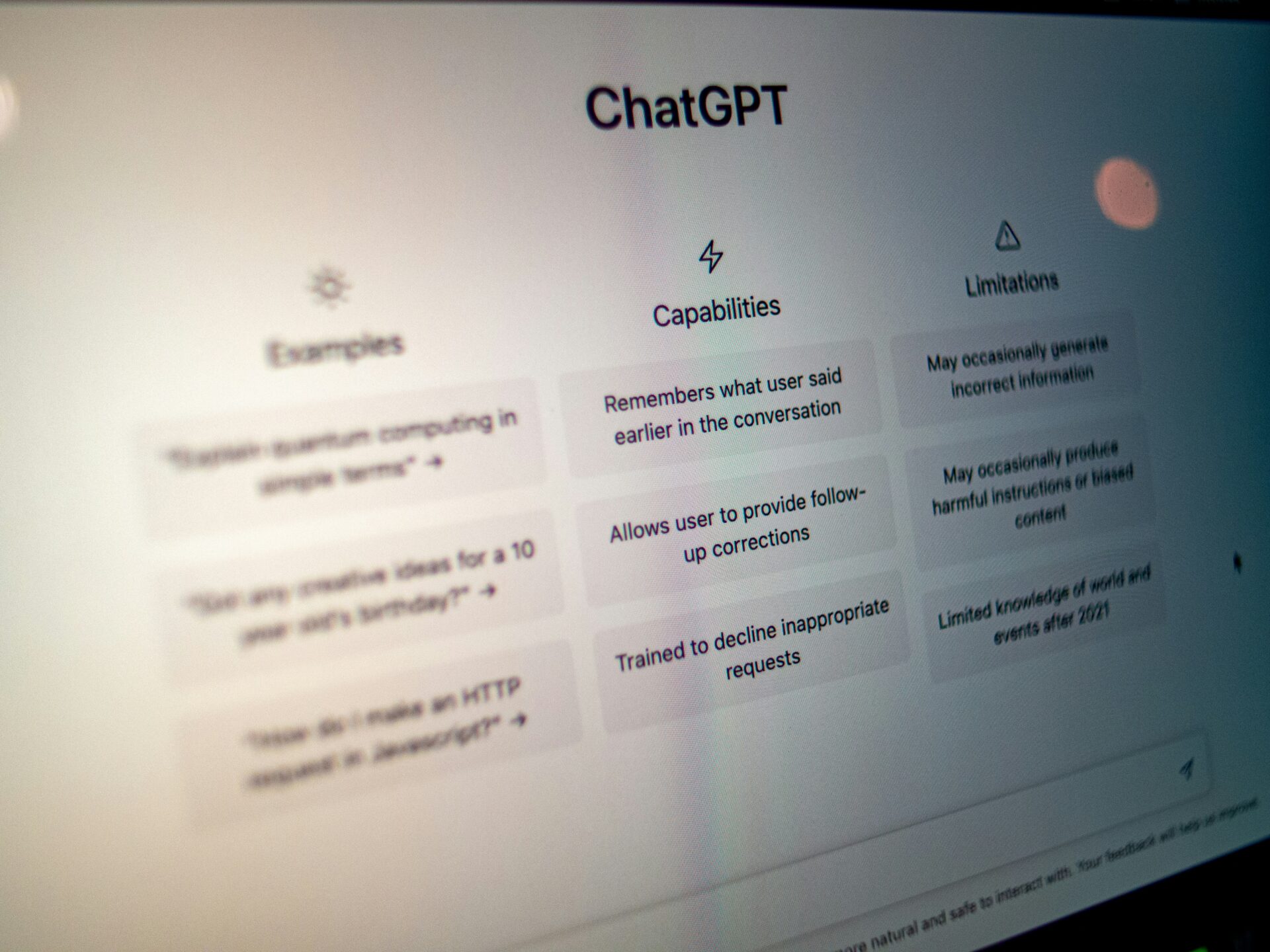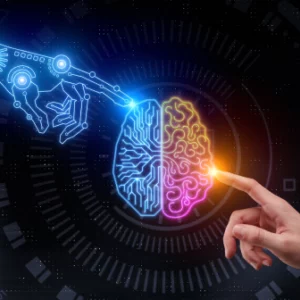Artificial Intelligence (AI) is rapidly transforming our world – from powering the recommendations on your favorite streaming platform to aiding doctors in diagnosing disease. As AI becomes a bigger part of everyday life and future careers, learning how to use and understand it is increasingly important for students. This guide explains the basics in clear terms, shows you a step‑by‑step path to start building AI skills, and points you towards resources and examples you can learn from, so you feel ready to explore AI with confidence and curiosity.
What Is Artificial Intelligence?
Artificial Intelligence refers to machines and computer programs that can mimic or replicate human intelligence. That means processing data, learning from patterns, solving problems, understanding language, and even making decisions—often at speeds and scales humans can’t match.
A Brief History: From Classics to Deep Learning
AI began as a dream in the 1950s, when pioneers like Alan Turing and John McCarthy imagined computers that could “think.” Early AI relied on symbols, rules, and logic – “if X, then Y.” Progress was slow until data-driven approaches took off in the 1980s and 1990s, ushering in machine learning. The past decade has been dominated by deep learning: AI systems inspired by the structure of the human brain (neural networks) that excel at recognising speech, images, and patterns in massive datasets.
Today, AI is best understood as a blend of techniques – symbolic reasoning, statistical learning, and complex neural networks – all working to solve specific problems. Read more about the early days of AI here.
Weak AI vs. Strong AI
Most AI today is narrow AI, brilliant at focused tasks like translating languages or recommending movies. Researchers aspire to “strong AI,” which would match human intelligence in reasoning, creativity, and general knowledge. For now, all practical applications remain in the realm of “weak” or “applied” AI. Strong AI is sometimes called artificial general intelligence (AGI), a system that could think, learn, and adapt across any subject in the way a human can. While AGI is still a future goal, everything you see today, from chatbots to self‑driving cars, is an example of “weak AI.”
What Is AI Used For?
You might encounter AI across countless domains:
- Healthcare: AI algorithms diagnose disease from X-rays or monitor patient health in real-time.
- Finance: AI predicts stock prices, uncovers fraud, and automates investing.
- Marketing: Customer data powers AI-driven segmentation, personalised ads, and content recommendations.
- Agriculture: Drones and image analysis monitor crops, optimise water use, and predict harvests.
- Manufacturing: AI predicts when equipment will fail (predictive maintenance) and improves quality control.
- Education: Adaptive learning AI tailors coursework to student needs and speeds.
- Content Creation: Generative AI writes articles, creates art, and composes music.
And these uses are constantly growing, with AI soon to help address climate change, automate transportation, and more.
Why Learn AI?
There are compelling reasons to master how to learn AI in today’s world:
- Career Value: AI expertise is in high demand in data science, engineering, research, and business analytics. Even basic AI skills impress tech-savvy employers.
- Problem-Solving Power: AI skills equip you to confront real-world challenges—improving efficiency, creating novel products, or making scientific breakthroughs.
- Future-Proofing: AI sits at the core of the digital transformation reshaping every sector. Learning AI means you’ll stay relevant, adaptable, and innovative as technology advances.
- Expanding Creativity: AI blends technical rigour with creativity, allowing you to explore new intersections of art, logic, and data.
The Step-by-Step Process of Learning AI
Knowing where to start can feel intimidating, but with the right steps, anyone can learn AI – regardless of background.
Step 1: Solidify Prerequisites – Programming and Math
Programming:
Begin with programming basics. Python is the industry standard for AI because it’s readable, flexible, and supported by powerful open-source libraries. Free resources like Codecademy, Python.org tutorials, and Automate the Boring Stuff are fantastic starts. Practice small coding exercises daily.
Mathematics:
Success in AI is built on math fundamentals. Studying the following topics in school will help you build that foundation:
- Linear algebra (matrices, vectors, transforms)
- Calculus (derivatives, gradients)
- Probability and statistics (distributions, hypothesis testing, data analysis)
Platforms like Khan Academy or MIT OpenCourseWare help strengthen your foundation.
Join the Immerse Education 2025 Essay Competition
Follow the instructions to write and submit your best essay for a chance to be awarded a 100% scholarship.

Step 2: Learn AI Basics
Explore the core concepts of AI:
- Machine learning types (supervised, unsupervised, reinforcement)
- Neural networks and deep learning
- Data preprocessing and cleaning
Read introductory books (like “Hands-On Machine Learning with Scikit-Learn, Keras, and TensorFlow” by Aurélien Géron) or take a MOOC (massive open online course).
Step 3: Build Simple AI Projects
Apply theory! Build mini-projects such as:
- Handwritten digit recognition using MNIST: You train a program to look at pictures of numbers people have written by hand and guess which digit (0–9) it is. It shows how AI can “see” and make sense of images.
- Spam message classifier: You give an AI lots of examples of spam and non‑spam emails or texts. The AI then learns the patterns and can sort new messages into “spam” or “not spam.”
- Movie recommendation system: The AI looks at what films people watch and enjoy, then suggests other movies you might like based on similar viewing habits.
Project-based learning cements AI skills and boosts confidence.
Step 4: Practice and Experiment
As you learn the basics, you can try out free collections of data online, such as Kaggle or the UCI Machine Learning Repository. These are like libraries of information you can use to test ideas. You can run different algorithms (the step‑by‑step rules that tell the computer how to learn), change their settings, and then see how the results improve or fail. It’s a safe way to practise and learn by trial and error.
Step 5: Advance Your Knowledge
Once you feel confident, you can start exploring more advanced areas of AI:
- Deep learning: This uses “neural networks,” which are computer systems loosely inspired by the human brain. They are especially good at recognising patterns, such as images or sounds.
- Natural language processing (NLP): This is how computers understand and use human language, powering things like chatbots and translation apps.
- Computer vision: This is AI that can “see” and understand pictures or videos, such as recognising faces or objects.
- Reinforcement learning: This is when an AI learns by trial and error, a bit like training a dog with rewards, and is often used in robotics or game‑playing AIs.
At this stage, you might try bigger projects, watch online talks and webinars, or share what you’ve learned with other students who are also exploring AI.
How Long Does It Take to Train AI?
AI learning is a journey—expect:
- 3 – 6 months: Grasp Python, math foundations, and basic machine learning
- 6 – 12 months: Complete intermediate AI/ML projects and understand deep learning principles
- 1 – 2 years+ for mastery: Lead complex projects, contribute to research, or specialise deeply in topics like NLP, robotics, or ethical AI
It’s completely normal to loop back and forth – AI advances quickly and everyone, even experts, keeps learning.
How to Make a Plan for Learning AI
Planning your AI journey accelerates progress and prevents overwhelm.
Step 1: Set Clear Learning Objectives
Define what matters to you:
- Do you want to become a data scientist, software engineer, or researcher?
- Is your focus on business applications, creative projects, or academic research?
Setting a specific goal clarifies which AI skills, topics, and projects to prioritise.
Step 2: Map a Weekly Study Plan
A sample beginner plan:
- 3 days/week learning Python and key math concepts
- 2 days/week applying new concepts through hands-on coding or project work
- 1 day/week reviewing theory, reading articles, or discussing concepts in forums
- 1 “rest” day to prevent burnout and consolidate learning
Track your progress with a learning journal or tools like Notion, Trello, or even a simple notebook- mark milestones and reflect on struggles/successes.
Sample Weekly AI Learning Plan
To give you a head start, here’s a mock weekly plan for beginners:
- Monday & Wednesday: Python programming: practical exercises (variables, loops, functions)
- Tuesday & Thursday: Math basics: linear algebra, calculus, probability (Khan Academy/YouTube)
- Friday: Complete one mini-project, e.g., dataset analysis or simple ML model
- Saturday: Read articles, watch MOOCs, or attend webinars; participate in AI forums
- Sunday: Reflect, summarise learning in a journal, set next week’s goals
Adjust the intensity as your confidence grows. Regular review deepens understanding and unlocks new possibilities.
Step 3: Build Consistent Habits
AI skills grow with regular practice. Schedule fixed “AI time” in your week – protect it like a class or work shift. Don’t let occasional setbacks deter you; persistence is key.
Step 4: Join Community and Collaborate
Studying alone can be tough. Find study groups, AI societies, or participate in hackathons and online communities like Stack Overflow or Reddit’s r/MachineLearning.
Mentorship and peer support supercharge motivation and fill knowledge gaps.
Where Exactly You Can Learn AI
Countless high-quality resources exist for every stage of your journey:
- MOOCs (Massive Open Online Courses):
- Coursera (e.g., Andrew Ng’s Machine Learning, DeepLearning.AI, Stanford AI courses)
- edX (MIT’s Introduction to Artificial Intelligence, Microsoft’s AI track)
- Udacity (AI Nanodegree, Robotics Nanodegree)
- Fast.ai (free, practical deep learning courses)
- Google AI (crash courses, hands-on guides)
- Interactive Python:
- Codecademy, DataCamp, Kaggle (short tracks and exercises)
- YouTube and Blogs:
- 3Blue1Brown (visual math concepts)
- Sentdex, StatQuest (practical coding tutorials)
- Blogs: Towards Data Science, Machine Learning Mastery
- Datasets for Practice:
- Kaggle (datasets, competitions, guided notebooks)
- UCI Machine Learning Repository
- Google Dataset Search
- Community and Mentorship:
- GitHub (collaborate on AI repos)
- Reddit, Discord groups, or university AI societies
- Summer Schools and Workshops:
- Immerse Education’s AI Summer School – deep-dive immersive programs
- Local university or tech bootcamps
- Professional Certification:
- IBM, AWS, Google AI certifications – recognised by employers worldwide
Tip: Sample multiple formats to see what suits your learning style and schedule best.
Diving Deeper: Key Concepts in AI
As you learn AI, focus on understanding these foundational topics:
- Machine Learning: Training algorithms to recognise patterns in data and make predictions.
- Supervised Learning: Learning from labelled data (e.g., house price prediction).
- Unsupervised Learning: Finding structure in unlabeled data (e.g., customer segmentation).
- Reinforcement Learning: Agents learn by trial and error, optimising actions for reward (e.g., game-playing robots).
- Deep Learning: Uses multi-layered neural networks for complex tasks like image or speech processing.
- Natural Language Processing (NLP): Computer understanding of human language (chatbots, translation, sentiment analysis).
- Computer Vision: Teaching machines to analyse and interpret images and video.
AI is vast, but starting with a broad overview and gradually exploring specialities allows you to find what excites you most.
Essential AI Tools and Technologies
Proficiency in key tools and technologies accelerates your AI skills. Come back to this list a few months in to you AI-learning journey – you might have a better understanding of where you’re likely to specialise.
- Python Ecosystem:
- NumPy, pandas for data manipulation
- matplotlib, seaborn for visualisation
- scikit-learn for classical machine learning
- TensorFlow, PyTorch, Keras for deep learning
- Jupyter Notebooks for interactive coding and sharing projects
- Version Control:
- Git, GitHub for tracking code changes, collaboration, and portfolio building
- Cloud Computing:
- Google Colab (free access to GPUs and TPUs), AWS, Azure for scalable training and experimentation
- Data Sources:
- Access open data from Kaggle, UCI, Google Dataset Search to build project experience
- Productivity and Collaboration Tools:
- Consider using project management tools, AI coding assistants, and workflow automations
- See our AI Productivity Tools guide
Knowing these tools helps you replicate professional workflows and accelerates career readiness.
Overcoming Challenges When Learning AI
Learning how to learn AI is a marathon – here are roadblocks and ways to conquer them:
- Steep math curve: Break topics into manageable parts. Use visual resources or peer explanations. Practice little and often.
- Programming hurdles: Seek sample code, debug step-by-step, ask questions in communities, and tackle small challenges to build confidence.
- Project overwhelm: Start with toy projects, work on open datasets, celebrate small wins, and iterate with feedback.
- Imposter syndrome: True in every field – remind yourself that even experts began as beginners. AI is collaborative, not competitive.
Motivation dips are natural. Track your journey, reflect on progress, and find accountability partners.
Advanced Topics, Ethics, and Industry Outlook
AI Specialisations
As you gain confidence, specialise further:
- Computer vision: Teaching computers to “see” and understand pictures or videos, like spotting faces or objects.
- NLP and speech recognition: Helping AI understand and use human language, whether written or spoken, such as chatbots or voice assistants.
- Robotics: Using AI to control machines and robots so they can move, react, and complete tasks in the real world.
- Reinforcement learning (RL): Training AI through trial and error, rewarding good choices so it learns over time, similar to how you might train a pet.
- Generative AI: Creating new things with AI, such as text, images, or music, by learning from examples.
- AI for social good: Applying AI to tackle important issues in society, from fighting climate change to improving healthcare or education.
AI Ethics and Responsible Use
Understanding AI’s ethical implications is crucial. Issues include bias in data, privacy, fairness, interpretability, and accountability. Study frameworks and case studies on responsible AI, and learn how developers use checks and balances to minimise negative impacts.
AI Careers and Industry Outlook
Job postings that require AI skills have increased by almost 29% per year on average over the past 15 years, and AI talent remains in very high demand across startups, large tech companies, government, and research labs. Possible roles include AI engineer, machine learning engineer, data scientist, research scientist, product manager, and more. Beyond tech, AI is reshaping work in law, finance, education, and creative arts.
Budding AI professionals should stay informed on industry trends, pay attention to emerging fields (like federated learning or explainable AI), and continuously expand your understanding.
How to Stay Up-to-Date and Lifelong Learning
AI is evolving rapidly. Stay engaged by:
- Reading AI/ML research papers (arXiv, Google Scholar)
- Following leading conferences: NeurIPS, ICML, CVPR
- Subscribing to podcasts (Data Skeptic, Lex Fridman, TWIML AI Podcast)
- Joining newsletters and social media groups for curated updates
- Following top AI researchers on Twitter or LinkedIn
This habit keeps your AI skills fresh and helps you adapt to shifts in technology and best practices.
Final Thoughts and Next Steps on How to Learn AI
Learning AI unlocks a world of opportunity, from practical projects to high-tech careers and world-changing research. While the path can seem daunting, every expert started by tackling the basics—one line of code, one algorithm, one dataset at a time.
By building strong foundations, pursuing projects that excite you, connecting with communities, and adapting as technology evolves, you’ll turn AI from a buzzword into a personal strength.
Explore further:
Embrace curiosity, iterate on your projects, and celebrate every milestone. The journey of learning AI is a marathon filled with discovery, creativity, and real-world impact. Start today, and watch your AI skills and career expand with the future of intelligent technology.





















